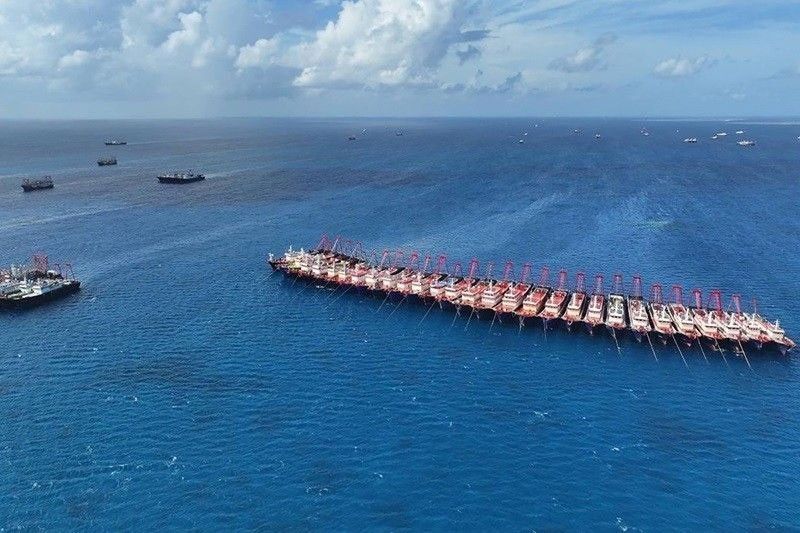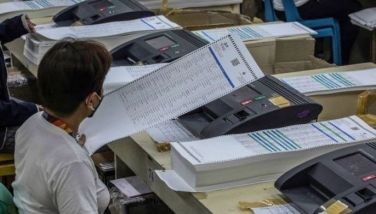Consider alliances with Netherlands, Norway, DFA urged

MANILA, Philippines — The Department of Foreign Affairs (DFA) should consider alliances with non-defense allies like Norway, the Netherlands and other countries for maritime exploration, research and development amid conflict with China over the West Philippines Sea (WPS), Sen. Francis Tolentino said yesterday.
Tolentino, chairman of the Senate committee on maritime and admiralty zone, aired his suggestion after the Chinese coast guard again water cannoned civilian vessels involved in resupply missions on the BRP Sierra Madre in Ayungin Shoal.
“Maybe very worrying… the statement made by China by the Ministry of Foreign Affairs, was (what the Philippines did was) an invitation to disgrace, inviting ourselves to be humiliated. That was very disrespectful language. The goal was not to embarrass, especially ourselves. It was only to bring supplies to our troops,” Tolentino noted in an interview over dzBB.
While the country should continue the resupply missions even by air, the senator said the alliances with non-defense allies would be one of two possible steps toward addressing the conflict between the Philippines and China over the WPS.
“First course of action, we can establish alliances, treaties, joint patrol and exercises with our allied countries,” Tolentino said.
“Second, we can also have joint exercises for peaceful marine science research in the area with non-allied countries with vast experience in science and research development, like Norway, which is not our ally in a defense treaty,” he added.
“So, we can involve Norway – who is good at maritime exploration, and research and development – in such an agreement,” Tolentino continued.
The senator added, “We can include the Netherlands. We can also include a country that is far from us, not only from Europe, but Latin America. We tap non-allied countries that seek to develop and explore the area through scientific research and development.”
Tolentino said the idea is not far-fetched, as there is already a model like that, “like the activities to explore and develop Antarctica, which has been considered as a common heritage of humankind.”
“We need not just our ordinary allies – our regular allies in terms of the defense agreement – but even non-defense allies who are concerned about peaceful resolutions and norms in international law,” he added.
Tolentino said he earlier raised the possibility of recalling the Philippine ambassador to China: “I already suggested to recall the ambassador. We can do a lot of things. Malacañang knows about it.”
He clarified that he was not suggesting to replace the vessels with the Philippine Navy, as it could trigger the Mutual Defense Treaty with the United States.”
Hold officials to account for Chinese PCG members
Meanwhile, officials in the previous Duterte administration, including those whose appointments may have been carried over to the current Marcos administration, should be held liable for recruiting 36 Chinese nationals to be members of the Philippine Coast Guard auxiliary corps (PCGA).
Rep. Robert Ace Barbers pressed for an investigation to identify and hold accountable – what he dubbed as “Makabagong Makapili” – officials responsible in recruiting and facilitating the entry of at least 36 Chinese nationals.
The Makabayang Katipunan ng mga Pilipino (Patriotic Association of Filipinos), better known as the Makapili, was a group of Filipino traitors formed during World War II to collaborate and provide aid to the invading imperial Japanese Army forces in the Philippines.
“It’s time to unmask them,” the Surigao del Norte second district congressman said, owing to an admission made by PCG commandant Admiral Ronnie Gil Gavan during a House hearing held last week, that previous PCG officers recruited and admitted more than 36 Chinese nationals into the auxiliary corps.
Barbers, chairman of the House committee on dangerous drugs, expressed bewilderment at how the PCG could recruit foreign nationals who were not even able to secure any national security clearance from concerned security agencies of the national government.
It could not be ascertained what ranks were given by the PCG to their 36 Chinese auxiliary corps members, but they could be Admiral (4-star general); Vice-Admiral (3-star general); Rear Admiral (two-star general); Commodore (one-star general); Captain (full colonel); Commander (lieutenant colonel); Lt. Commander (major); Lt. Commander (captain); and Lt. Senior Grade (lieutenant).
Also, it could not be determined what the Chinese nationals put up in exchange for their admission to the PCGA.
tionals recruited and admitted as PCGA members, Gavan sought an executive session “to discuss more thoroughly the issue at hand in the next hearing due to the sensitivity of the matter.”
Chinese in PCG ‘an embarrassment’
Tolentino described the PCG program to have Chinese nationals as members of the PCGA as “an embarrassment.”
He suggested that a thorough internal investigation should be conducted to get to the bottom of the matter.
“Perhaps we should identify them, and intelligence agencies can do a post-investigation and vetting again if there has been some damage. This is not ordinary. The mere fact that they have associated themselves, enrolled themselves, and projected themselves to be part of PCG auxiliary is, again, an embarrassment, to say the least, as far as this agency is concerned,” Tolentino added.
He said China could brag that they even managed to enter the Philippines as part of the PCGA.
“I can’t say that someone actually spied or not, but whether there is or not, the mere perception that it can happen cannot be set aside. To clarify, those involved can do an internal investigation or temporary suspension,” Tolentino noted.
“If they want to help, there should be a thorough investigation, what is the real purpose, if it really helped, there is nothing we can do, perhaps they could join as a group to come out as well-meaning residents or citizens of the Philippines,” he said. — Delon Porcalla
- Latest
- Trending






























